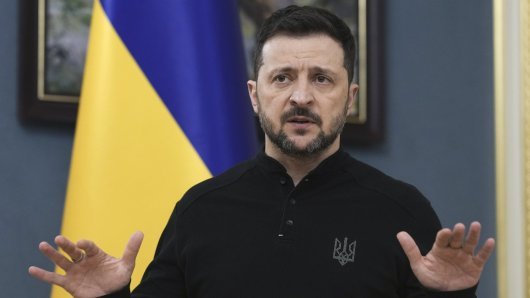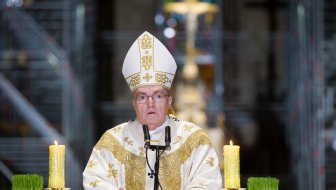The Hague war crimes tribunal's prosecution on Thursday asked that six former Bosnian Croat political and military leaders, accused of war crimes committed during the 1992-95 war in Bosnia and Herzegovina, be found guilty and sentenced to prison sentences ranging from 25 to 40 years.
Leaders of the former self-styled Croat Community of Herceg Bosna - Prime Minister Jadranko Prlic, Defence Minister Bruno Stojic, HVO (Bosnian Croat Defence Council) generals Slobodan Praljak and Milivoj Petkovic, the commander of the HVO military police, Valentin Coric, and the head of the commission for the exchange of prisoners of war, Berislav Pusic - were charged with crimes against humanity committed as part of a joint criminal enterprise against Bosniaks and other non-Croats in areas of Bosnia and Herzegovina which they wanted to annex to Croatia.
At the end of this week's closing statement, lead prosecutor Kenneth Scott asked 40-year prison sentences for Prlic, Stojic, Praljak and Petkovic, a 35-year sentence for Coric, and a 25-year sentence for Pusic.
Earlier today, the prosecution said evidence proved that Coric was responsible for the conduct of military police at all times.
The prosecution accused the military police of involvement in ethnic cleansing of Muslims during the Bosnian war as well as of unlawful treatment of Muslim men in detention camps in Herceg Bosna.
The prosecution backed its argument that Coric was committed to ethnically clean Croatian territories in Herceg Bosna with a paper in which he wrote that the honour of and commitment to the Croatian cause were military police recruitment criteria.
Which Muslim could meet those criteria, asked prosecutor Douglas Stringer.
According to the prosecutors, Coric's involvement in a joint criminal enterprise also stemmed from his attendance of high level meetings in Herceg Bosna, and Zagreb, too, considered him committed to the achievement of Bosnian Croat policy goals at the time.
Coric significantly contributed to the joint criminal enterprise. He had enormous power in his sphere, the military police, Stringer said, adding Coric neither condemned nor punished the unlawful conduct of his subordinates towards the Bosniaks, such as their expulsion from flats and the subsequent occupation of those flats.
Stringer said that like Praljak, Coric was so committed to the Herceg Bosna cause that he was willing to condone crimes.
Stringer concluded from the fact that Coric was notified about Pusic's orders on the transfer of prisoners from one prison or camp to another that there existed a uniform prison system, under the jurisdiction of both men, from which prisoners were taken to the battlefield for forced labour.
Prosecutor Pieter Kruger said the prosecution proved beyond reasonable doubt during the proceedings that Pusic was involved in the joint criminal enterprise and was guilty of the charges against him.
During the trial, Pusic's defence did not introduce evidence, claiming it was unnecessary, as the prosecutors did not prove their accusations. Pusic was not in court this week due to health problems.
Regarding the defence's final motion, Kruger dismissed their argument that Pusic, as head of the commission for the exchange of POWs, had only administrative and technical powers.
His accountability is of a higher level, said the prosecutor.






![[FOTO] Na Laništu opet naslikan mural Slobodanu Praljku, što će učiniti Tomašević?](/media/thumbnail/500x300/1598908.jpeg?cropId=0)
![[FOTO] Muškarac revoltiran uklanjanjem murala došao pred Gradsku upravu i pisao sprejem](/media/thumbnail/500x300/1568140.png?cropId=0)




























